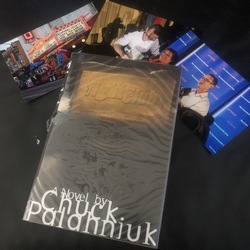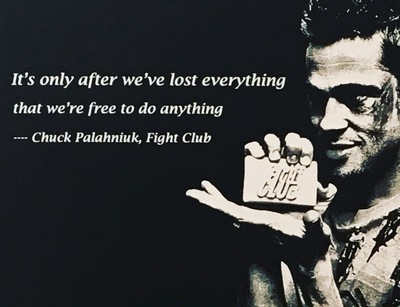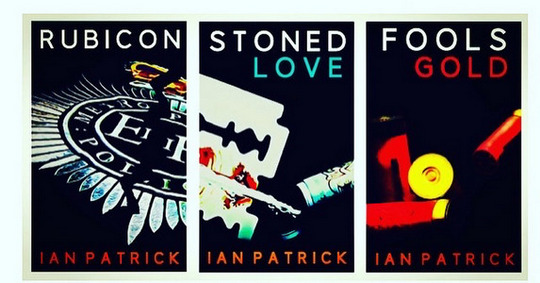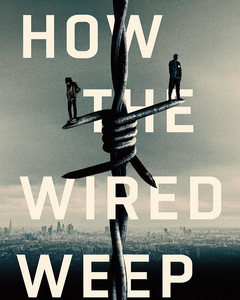
A Reader’s Snapshot
by H. C. Newton
In 1996 my plan was still to write (at least) part-time. It wasn’t long before I got over that as more and more I realized that I didn’t possess the requisite talent, drive, or discipline to actually pull that off. What I did have was a love for the written word that goes back far before then. Maybe I wasn’t much of a writer, but I was a reader.
1996 was the last year that I lived in the dorms—for some reason, when we returned to school for our last semester the next year, my wife and I decided that it’d be better to live together, so this was it for the dorms. Every year when I moved into/out of the dorms, I would pack up 100-150 books that I just had to have within reach—the rest could take up space in my old room at my parents’ house. I would get weird looks from just about everyone about the number of books I’d bring to school that had nothing to do with any of the classes I was taking. But even then—before then, actually—just having some of these trusted friends near and accessible was important.
Still, leisure reading wasn’t high on my priority list—I probably did more than I should’ve (I can point to a couple of less-than-stellar grades to back me up). There was a lot of Literary Theory, British poetry (largely from the 17th-19th century), some Behavior Modification psychology—that kind of thing.
There was a class in American Studies that a few of my engineering pals talked me into taking with them—they needed an upper-division Liberal Arts class to prove they realized there was more to life than numbers and asked me to tag along. Outside of the textbook for that class we had to read Black Elk Speaks by John G. Neihardt (which I couldn’t get into at all then or a couple of times since) and The Geography of Nowhere: The Rise and Decline of America’s Man-Made Landscape by James Howard Kunstler (I found this fascinating).
There’s only one new/new-to-me novel that I’m sure I read in 1996—a little thing called Primary Colors by Anonymous (later revealed to be Joe Klein). And I had to work hard to find a copy, and got one of the last ones in town on the week it was released. It was selling out across the nation and internet bookstores were not a thing. If you wanted a copy, you had to go somewhere and put your hands on it. I visited all three bookstores in town one morning and I’m pretty sure there was only one other copy on the shelf (or maybe I picked that one up). I remember a professor a couple of days later expressing jealousy that I’d got it.
I remember reading a lot of humor around that time—I definitely read All the Trouble in the World by P.J. O’Rourke and two Dave Barry books—Dave Barry’s Complete Guide to Guys and Dave Barry in Cyberspace, there was some re-reading of Paul Reiser, Lewis Grizzard, SeinLanguage, and that kind of thing. (this is one of the things that I dabbled in writing)
In 1996, I was reading Cyberpunk and post-Cyberpunk kind of SF. Rudy Rucker’s Hacker and the Ants; Crashcourse by Wilhelmina Baird, Synners by Pat Cadigan, Idoru by William Gibson. I tried Snow Crash by Neal Stephenson, too (small confession: I’ve tried that multiple times, I’ve only been able to finish his The Diamond Age). Jonathan Letham’s Gun, with Occasional Music and Jeff Noon’s Vurt fit in there somewhere.
Believe it or not, when it comes to Mystery/Detective fiction, I didn’t read a whole lot. This was the last year I did my “read every Spenser novel in print over a three-day weekend” project. In fact, 1996 was the first (and only) year since I started reading Spenser that I didn’t buy and/or read the new novel (however, in 1997, I got to read three new-to-me-Parkers—1996’s Chance and 1997’s Small Vices—along with the first Jesse Stone novel, Night Passage). I’m sure I re-read a handful of Nero Wolfe and Gideon Oliver novels—and maybe even a Perry Mason or Brady Coyne book or two. But I just wasn’t reading new mystery/detective novels at that time. I didn’t have time for experimentation/discovery—just for re-reading.
I know I didn’t read any fantasy novels that year—at the time, I can only think of one or two stand-alone Fantasy novels that I’d found (and they both eventually became series). So the only Fantasy I’d really come across were part of a trilogy, or as part of a longer thing—like The Wheel of Time was shaping up to be. I would only read completed series back then, and I didn’t like carving out that much time to read them—I always felt exhausted afterward. And given school and personal life, I wouldn’t have let myself take the time, had I any ideas for them.
I was in the middle of a really deep dive on the theological front—Michael S. Horton’s In the Face of God was on the lighter end, along with G. I. Williamson’s on study guides for the Westminster Confession and Shorter Catechism, and R. C. Sproul’s The Intimate Marriage. On the other end of the spectrum, I was working through The Bondage and Liberation of the Will by John Calvin as well as his Institutes of the Christian Religion—the Beveridge translation in a blue paperback that could be used as a melee weapon (my wife got me the classier looking hardcover edition of the Battles translation as a gift that year). I also discovered Richard Muller’s Dictionary of Latin and Greek Theological Terms that year, one of those evergreen finds.
I really shot myself in the foot with this idea, I realized much too late. I have a much stronger idea about the books I read in 1995 and 1997, for example. Or probably just about any other year since 1986. So did I gain any insight thanks to this stroll down Amnesia Lane? I’m not really sure. It was kind of fun trying to figure out what I’d been reading (why didn’t I track things then?) I can grab a hint or two about how my tastes developed from this point—but honestly, I’m not sure what I’ve gained from this exercise. Maybe after it percolates a bit longer, I’ll see it. If you’ve read this far, hopefully it was a little interesting—and helped you remember a thing or two about your own reading 25 years ago.
Header image by jplenio from Pixabay
![]()








